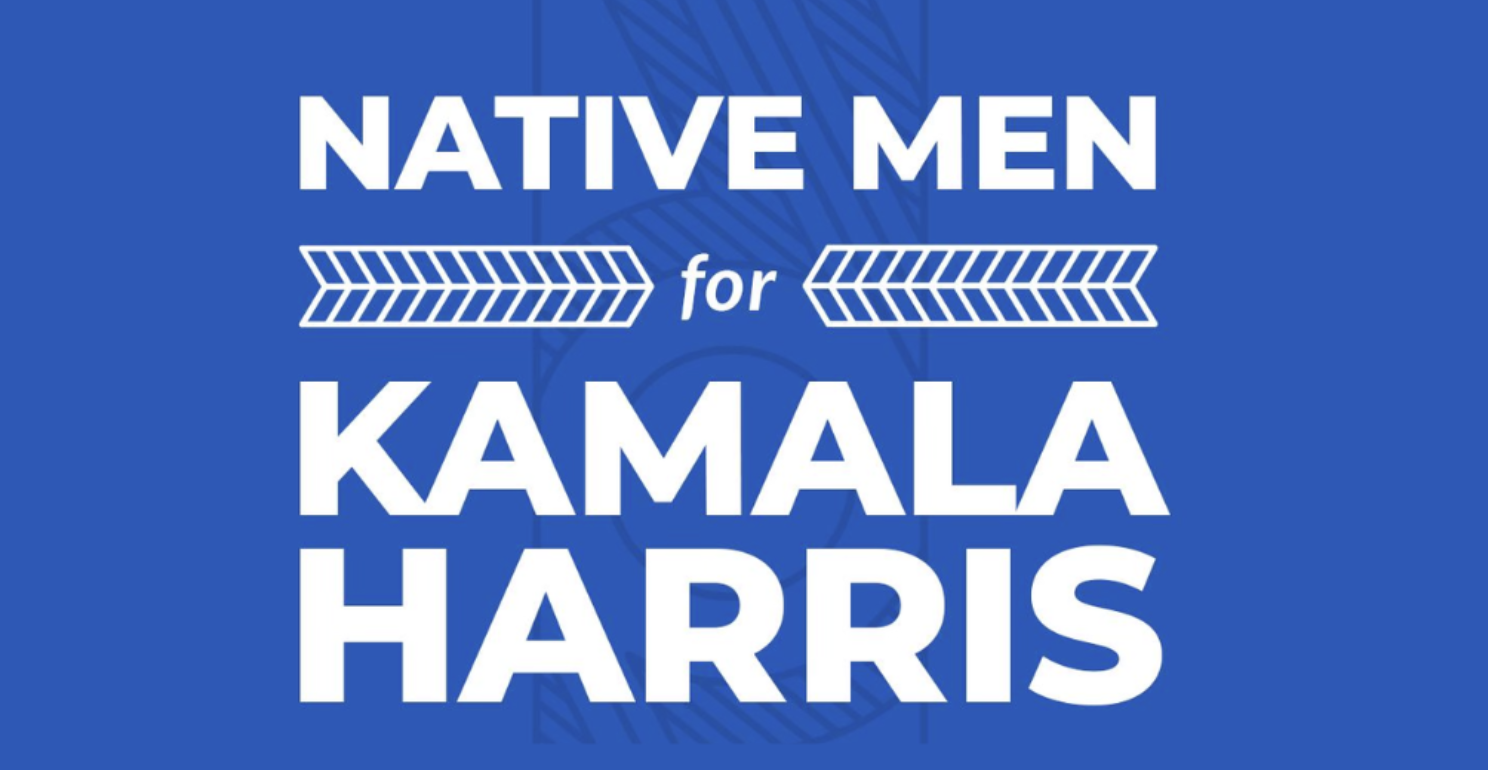
- Details
- By Donovan Quintero
Native Vote 2024. GALLUP, N.M. – In a show of support for Vice President Kamala Harris’s presidential candidacy, the organization Native Men for Kamala Harris successfully raised $15,000 during a virtual fundraising event held on Wednesday night.
Minnesoata Lt. Gov. Peggy Flanagan, (White Earth Band of Ojibwe) said during the event that she is elated over Harris selecting Minnesota Gov. Tim Walz as her running mate.
“The last 36 hours of my life have been a little hectic, but so good because my partner in justice, Governor Tim Walz, was named as her (Kamala Harris’s) vice presidential pick. When that was announced, I burst into tears, tears of joy, and was able to, shortly thereafter, have a conversation with the governor. He was giddy and ready to go to work governing,” Flanagan said.
The event, which drew nearly 200 attendees, focused on the importance of Indigenous representation in government and the pressing issues facing Native American communities today. Participants shared personal stories and experiences, highlighting the critical need for strong leadership that prioritizes the rights and well-being of Native peoples.
Flanagan touted Walz’s laundry list of accomplishments. She said Walz was the first governor in the U.S. to establish a Missing and Murdered Indigenous Relatives office.
“We codified government-to-government tribal consultation with all of our eleven tribal nations in the state of Minnesota; we now require every state agency — all of our commissioners, deputy commissioners, assistant commissioners, to go through tribal state relations training — including everybody who works in the office of Governor and Lieutenant Governor,” Flanagan continued. “We funded the American Indian Scholars Program, which provides college access and tuition for Native students across the state of Minnesota, and expanded our Minnesota Indian teacher training program.”
Flanagan is on track to become the first-ever female Indigenous governor of any state, assuming Kamala Harris and Walt defeat Republican candidate Donald Trump and his vice presidential candidate Ohio Sen. JD Vance in November.
Throughout the Native Men for Harris event, attendees engaged in discussions on various topics, including education, health care, and economic development within Native American communities. The dialogue highlighted the favorable policies Harris has proposed that could have a lasting positive impact on Indigenous populations.
Native American Rights Fund Deputy Director Matt Campbell, who attended the virtual event in his own personal capacity, told the online attendees that despite Native voters flexing “their power” on Election Day, which got President Joe Biden elected in Arizona in 2020 and helped Sen. Heidi Heitkamp serve North Dakota from 2013-2019, their right to vote is always under threat.
Campbell highlighted North Dakota’s enactment of the most restrictive voter ID law in the country, which directly targets Native voters, and Arizona’s address requirement to vote.
“We know they just don’t exist on many reservations. We know that many of our local counties place polling places, sometimes one hundred miles away from the reservation, just to make it difficult to vote,” said Campbell. “We’ve seen so many other barriers raised over the years, whether it’s language barriers and not translating ballots or placing polling places and chicken coops in places like South Dakota, but we know our people are resilient and we know we’re here to fight and make sure that the right to vote is protected.”
The $15,000 raised during the online discussion will help support outreach efforts aimed at increasing voter engagement among Native Americans and amplifying their concerns in the electoral process.
More Stories Like This
Native News Weekly (August 25, 2024): D.C. BriefsScope Narrowed, Report Withheld: Questions Mount Over Michigan Boarding School Study
Zuni Youth Enrichment Project Announces Family Engagement Night and Spring Break Youth Programming
Next on Native Bidaské: Leonard Peltier Reflects on His First Year After Prison
Deb Haaland Rolls Out Affordability Agenda in Albuquerque
Help us defend tribal sovereignty.
At Native News Online, our mission is rooted in telling the stories that strengthen sovereignty and uplift Indigenous voices — not just at year’s end, but every single day.
Because of your generosity last year, we were able to keep our reporters on the ground in tribal communities, at national gatherings and in the halls of Congress — covering the issues that matter most to Indian Country: sovereignty, culture, education, health and economic opportunity.
That support sustained us through a tough year in 2025. Now, as we look to the year ahead, we need your help right now to ensure warrior journalism remains strong — reporting that defends tribal sovereignty, amplifies Native truth, and holds power accountable.
 The stakes couldn't be higher. Your support keeps Native voices heard, Native stories told and Native sovereignty defended.
The stakes couldn't be higher. Your support keeps Native voices heard, Native stories told and Native sovereignty defended.
Stand with Warrior Journalism today.
Levi Rickert (Potawatomi), Editor & Publisher

